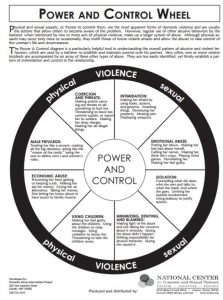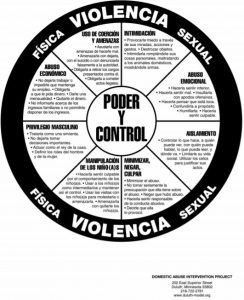Warning Signs

Recognize the warning signs, and get help.
 Whether you are a survivor or a friend or family member, it’s important to know the warning signs of abuse.
Whether you are a survivor or a friend or family member, it’s important to know the warning signs of abuse.
For Survivors:
Does your partner use any of these tactics on you?
Learn more about abuse. See this definition of abuse by the National Domestic Violence Hotline. Abuse often gets worse over time.
If you think you or a loved one are being abused, please call us at 719-486-3530 for safety planning, information, and comfort. We are professionally trained to help you.
 For Friends and Family:
For Friends and Family:
It can be hard to tell if someone you love is in an abusive relationship. Here are some common warning signs to watch for:
- An Extremely Jealous Partner: Does the abusive partner constantly call the victim names, fight with other males in social settings, glare at the victim when she is speaking with someone other than the abuser? Does he dominate all her time, constantly asking who she is with and when’ll she be home? Does he accuse her of dressing provocatively or cheating?
- Isolation: Is the abusive partner eliminating the victim’s sources of help and confidence? An abusive partner may demand that the victim give up friendships, relationships with family members, social activities, clubs, etc. The abusive partner may demand that she give up these sources of support one by one, until the victim has no one to confide in, no one to see the injuries, and no one to help.
- Absences from Work or School: Does the victim frequently miss work, school, or social events? The abusive partner may be demanding the victim stay at home or may be immobilizing her vehicle, sabotaging day care, etc. The victim may also be afraid of letting others see her injuries.
- Sudden Changes in Personality or Appearance: Has the victim changed their hair, makeup, style of dress, interests, or activities after entering a relationship? Do you notice changes to anything else that had once been a part of who they were?
- Fear of Conflict: Be concerned if the victim avoids conflict with co-workers, friends, relatives, and neighbors. She may feel powerless in all relationships.
- Self-Blame: Does the victim takes the blame for anything and everything that goes wrong in other relationships? The “Yeah, but I caused it because…” symptom comes from constantly being berated and blamed for anything that happens or goes wrong (whether real or imagined).
- Injuries and Excuses: Be concerned if you see bruises and injuries frequently and in obvious places on the victim. When injuries are obvious, the intent of the abuser is to keep the victim isolated and trapped at home, for fear of someone seeing the injuries. However, if you never see bruises and other outward injuries, the person may still be a victim of abuse. Abusers may quickly learn how and where to strike so that marks will not be obvious.
If you see any of these warning signs, please call our 24/7 hotline at 719-486-3530.
